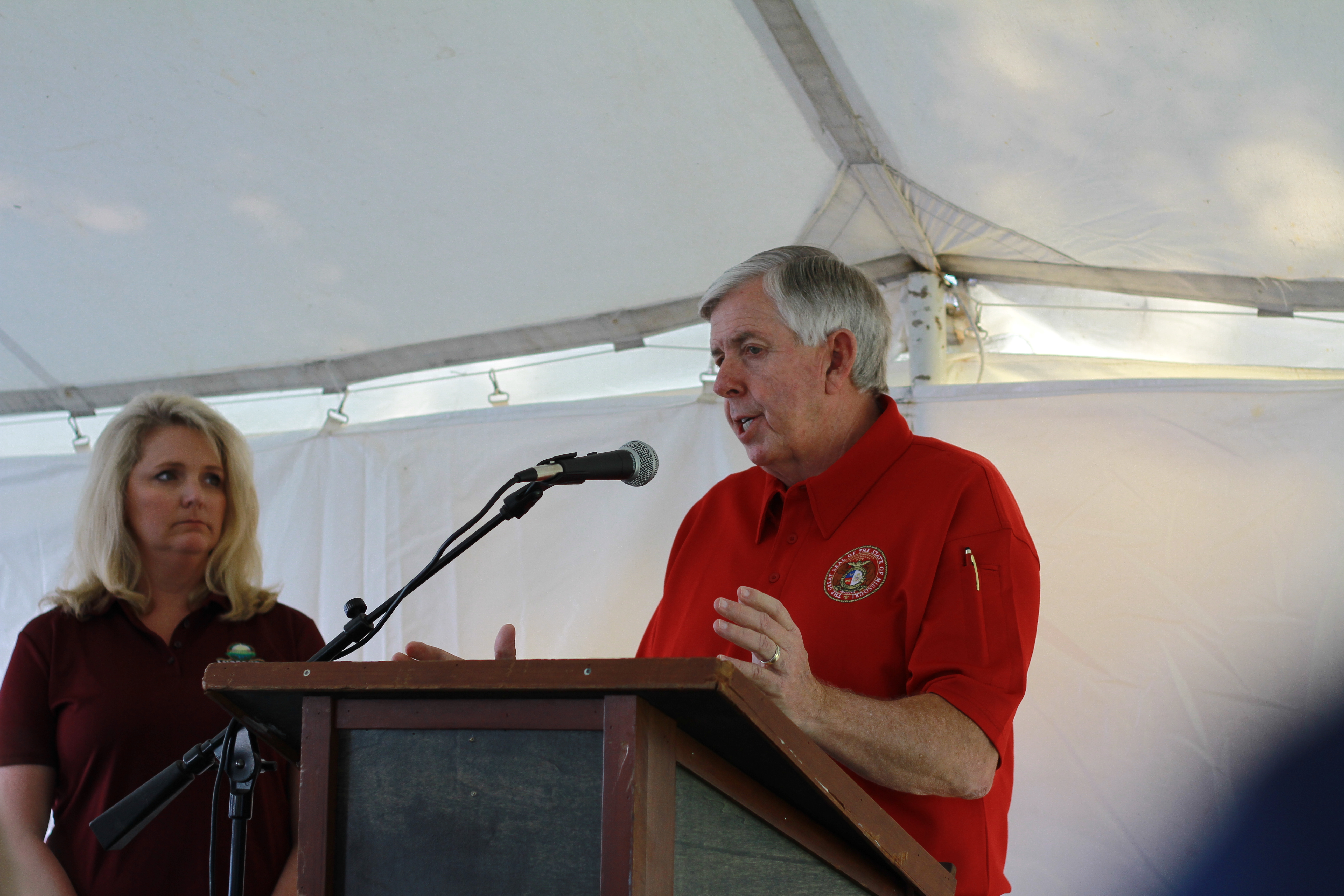SEDALIA, Mo. — Missouri’s chief executive is mulling over bringing lawmakers back to the Capitol for a “very limited” special session.
Gov. Mike Parson spoke to reporters about the possibility following the annual Governor’s Ham Breakfast at the Missouri State Fair on Thursday. He said there are “a couple issues” he is looking at, one of which centers around a Missouri Supreme Court ruling involving the Department of Revenue (DOR).
On June 25, the high court unanimously determined state statute allows the sale proceeds of only one vehicle to be credited against the purchase price of a new vehicle in computing sales tax.
The issue came to a head when David and Jill Kehlenbrink sought a sales tax refund from the purchase of a new vehicle after selling two additional vehicles.
The Kehlenbrink’s claimed the combined value of two vehicles they had sold against the purchase price of the new vehicle and paid sales tax on the net difference. Later, they sold two more vehicles and sought a sales tax refund based their value against the purchased vehicle. The total credit from all four vehicles exceeded the purchase price of the new vehicle.
The DOR director denied the refund application. The Administrative Hearing Commission sided with the Kehlenbrinks’ but the decision was overturned by the Missouri Supreme Court.
State law “unambiguously permits the sale proceeds of only one vehicle to reduce the purchase price of a newly purchased vehicle for purposes of calculating sales tax,” the ruling stated.
It would be a rather technical change, according to Parson, which effects 2,000-3,000 Missourians.
“Its money out of their pocket. …You paid taxes on it already, you should be able to utilize that towards another vehicle,” Parson said. “A special session is possible for that. But it would be a very limited special session.”
Last year, Parson called a special session — focussing on STEM education and treatment court expansion — concurrent with veto session. The timeliness of the two sessions was seen as a way to “cut down on any additional costs and save taxpayer dollars.”

Alisha Shurr was a reporter for The Missouri Times and The Missouri Times Magazine. She joined The Missouri Times in January 2018 after working as a copy editor for her hometown newspaper in Southern Oregon. Alisha is a graduate of Kansas State University.















